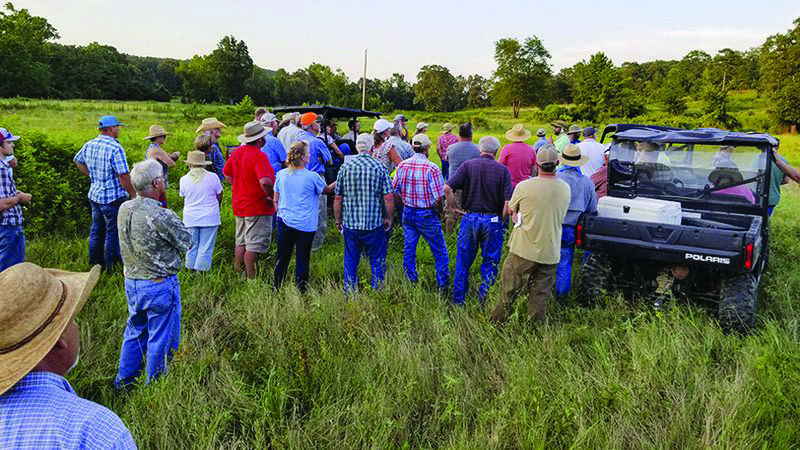CAMDEN — EL DORADO — Landowners and representatives from timber companies, non-profit organizations and state agencies representing more than 1.1 million acres of private land in southern Arkansas collaborated during June workshops in Hope and El Dorado to improve habitat for turkey, quail and other wildlife in Arkansas.
A news release from the Arkansas Game and Fish Commission states:
“Thanks to the help of Commissioner J.D. Neeley, owner of Neeley Forestry Services (in Camden), the meetings were coordinated with the help of local forestry consultants and each meeting had more than 100 people in attendance.”
The workshops are part of the Arkansas Game and Fish Commission’s ongoing effort to work with private landowners throughout the state to help manage wildlife across the entire landscape.
According to Luke Lewis, assistant chief of the AGFC’s Wildlife Management Division, this cooperation from private landowners is essential.
“Close to 90 percent of Arkansas is in private ownership,” Lewis said. “If we’re going to do things for quail, turkeys, pollinators and our deer programs as we look at issues like CWD, it’s got to be done with some of these small private landowners being a part of the effort.”
“It was kind of an ‘Aha! moment’ for us, realizing how many private landowners forestry consultants touch and how many depend on them to make sound management decisions,” said Lewis. “Several large consulting companies helped sponsor the meals and location and helped us develop a list of contacts to invite to the workshops.”
Each workshop had three primary goals: to educate landowners about the needs of wildlife, to help landowners develop and implement plans to create better wildlife habitat, and to empower participants with the contact information they need to get the work done with as little expense as possible.
Lewis said:
“When a person left each workshop, we wanted them to have the answers to these three questions: Do you have a plan to improve wildlife habitat on your property? Do you know about the programs and options available to help pay for any expenses to implement your plan? Do you know how to get in touch with contractors to do the larger parts of the work like prescribed fire, mulching and thinning you may not be equipped to handle on your own?”
The last of those questions can sometimes be the biggest barrier for many small landowners.
The willingness to improve wildlife habitat is strong with many people, but knowing where to get started can be

